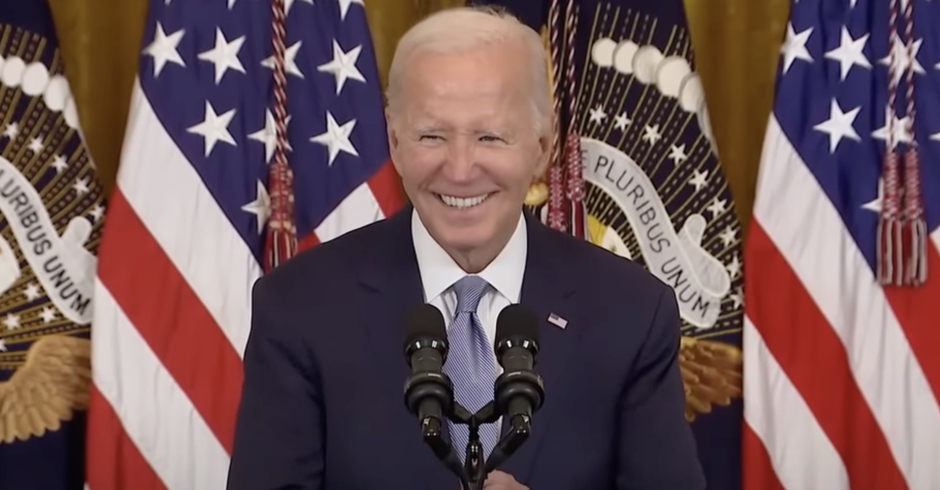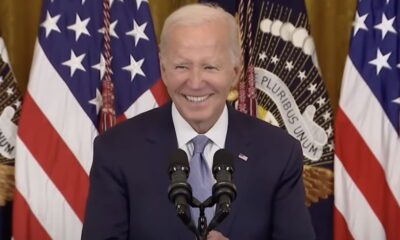Was Malcolm X Gay?
Malcolm X — one of the African-American community’s most influential and most controversial activists — has been the subject of recent re-examinations as a new biography, “Malcolm X: A Life of Reinvention,†comes to press just days after its author suddenly died. And many are asking again, was Malcolm X gay? The biography states that Malcolm X, who was born in Omaha, Nebraska as Malcolm Little, had “an early homosexual relationship with a white businessman,” according to a review in The New York Times. The book, by Malcolm X biographer Manning Marable, scheduled to be published today, is not the first to state Malcolm X had a same-sex relationship. Others have stated Malcolm X was bisexual. Some, like U.K. LGBT activist Peter Tatchell, have suggested the black and gay communities should embrace Malcom X’s sexual orientation.
The Times says Manning’s new work, which spans almost 600 pages, “is particularly critical of the celebrated ‘Autobiography of Malcolm X,’ now a staple of college reading lists, which was written with Alex Haley,” adding that Marable described it as “fictive.”
“Drawing on diaries, private correspondence and surveillance records to a much greater extent than previous biographies, his book also suggests that the New York City Police Department and the F.B.I. had advance knowledge of Malcolm X’s assassination but allowed it to happen and then deliberately bungled the investigation.
“This book gives us a richer, more profound, more complicated and more fully fleshed out Malcolm than we have ever had before,†Michael Eric Dyson, the author of “Making Malcolm: The Myth and Meaning of Malcolm X†and a professor of sociology at Georgetown University, said on Thursday. “He’s done as thorough and exhaustive a job as has ever been done in piecing together the life and evolution of Malcolm X, rescuing him from both the hagiography of uncritical advocates and the demonization of undeterred critics.â€
In a 2009 article, Peter Tatchell writes, “October is Black History Month in Britain – a wonderful celebration of the huge, important and valuable contribution that black people have made to humanity and to popular culture.”
Read: “Gays: It Is All Your Fault.“
He adds, “It is also worth celebrating that many leading black icons have been lesbian, gay, bisexual or transgender (LGBT), most notably the US black liberation hero Malcolm X. Other prominent black LGBTs include jazz singer Billie Holiday, author and civil rights activist James Baldwin, soul singer-songwriter Luther Vandross, blues singer Bessie Smith, poet and short story writer Langston Hughes, singer Johnny Mathis, novelist Alice Walker, civil rights activist and organiser of the 1963 March on Washington Bayard Rustin, blues singer Ma Rainey, dancer and choreographer Alvin Ailey, actress, singer and dancer Josephine Baker, Olympic diving gold medallist Greg Louganis, singer and songwriter Little Richard, political activist and philosopher Angela Davis, singer-songwriter Tracy Chapman and drag performer and singer RuPaul.”
Tatchell laments of “the denialism surrounding the bisexuality of one of the greatest modern black liberation heroes: Malcolm X,” and says the “lack of recognition is perhaps not surprising, given that some of his family and many black activists have made strenuous efforts to deny his same-sex relationships and suppress recognition of the full spectrum of his sexuality.”
He asks, “Why the cover-up? So what if Malcolm X was bisexual? Does this diminish his reputation and achievements? Of course not. Whether he was gay, straight or bisexual should not matter. His stature remains, regardless of his sexual orientation. Yet many of the people who revere him seem reluctant to accept that their hero, and mine, was bisexual.”
In 2006, Dr. Marc Lamont Hill, one of the leading hip-hop generation intellectuals in the country, wrote, “according to very good sources, Malcolm engaged in many same sex encounters before his conversion to the Nation of Islam.” Hill describes a conversation he had with a disbelieving friend who came to possible acceptance of the truth about Malcolm X, and observed, “in constructing Malcolm X as a ‘reformed queer,’ as opposed to a gay/bisexual hero, he squandered a valuable opportunity to reimagine Black masculinity and help expand the realm of political possibilities for Black gays and lesbians. Contrary to what is often said, acknowledging who and what Malcolm really was will not tarnish his legacy.”
Read: “Martin Luther King, Jr. Shot 43 Years Ago Today Supporting Labor Rights“
Tatchell, one year earlier than Hill’s conversation, says, “There is not a single world-famous black person who is openly gay. Young black lesbians and gays need role models. Who better than Malcolm X, one of the inspirations of my activism and one of the great modern heroes of black liberation?
It’s important to accept that no hero is a super-hero, and Malcolm X, like all heroes and icons, had his flaws. He’s certainly been accused of misogyny, racism, black supremacy, antisemitism, and violence. With Marable’s new work soon to be available, we have another resource to examine the life Of Malcolm X, and more opportunity to decide for ourselves what part of him is “hero,” what part “icon,” and what part just an every-day man. Perhaps that part, for some, will be his greatest legacy.

Enjoy this piece?
… then let us make a small request. The New Civil Rights Movement depends on readers like you to meet our ongoing expenses and continue producing quality progressive journalism. Three Silicon Valley giants consume 70 percent of all online advertising dollars, so we need your help to continue doing what we do.
NCRM is independent. You won’t find mainstream media bias here. From unflinching coverage of religious extremism, to spotlighting efforts to roll back our rights, NCRM continues to speak truth to power. America needs independent voices like NCRM to be sure no one is forgotten.
Every reader contribution, whatever the amount, makes a tremendous difference. Help ensure NCRM remains independent long into the future. Support progressive journalism with a one-time contribution to NCRM, or click here to become a subscriber. Thank you. Click here to donate by check.
 |










